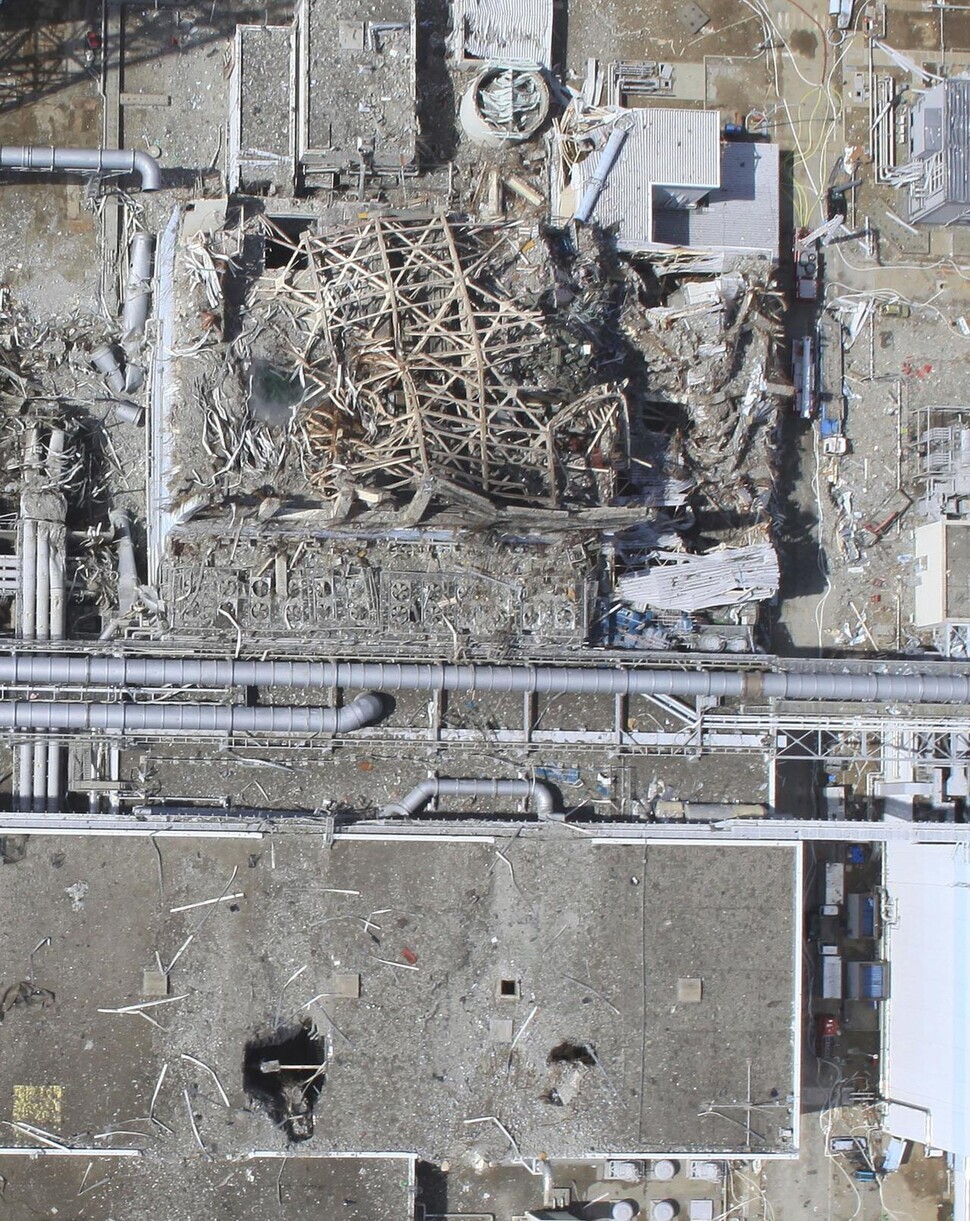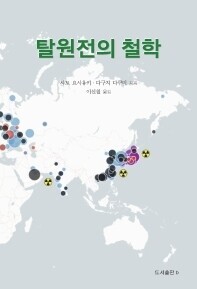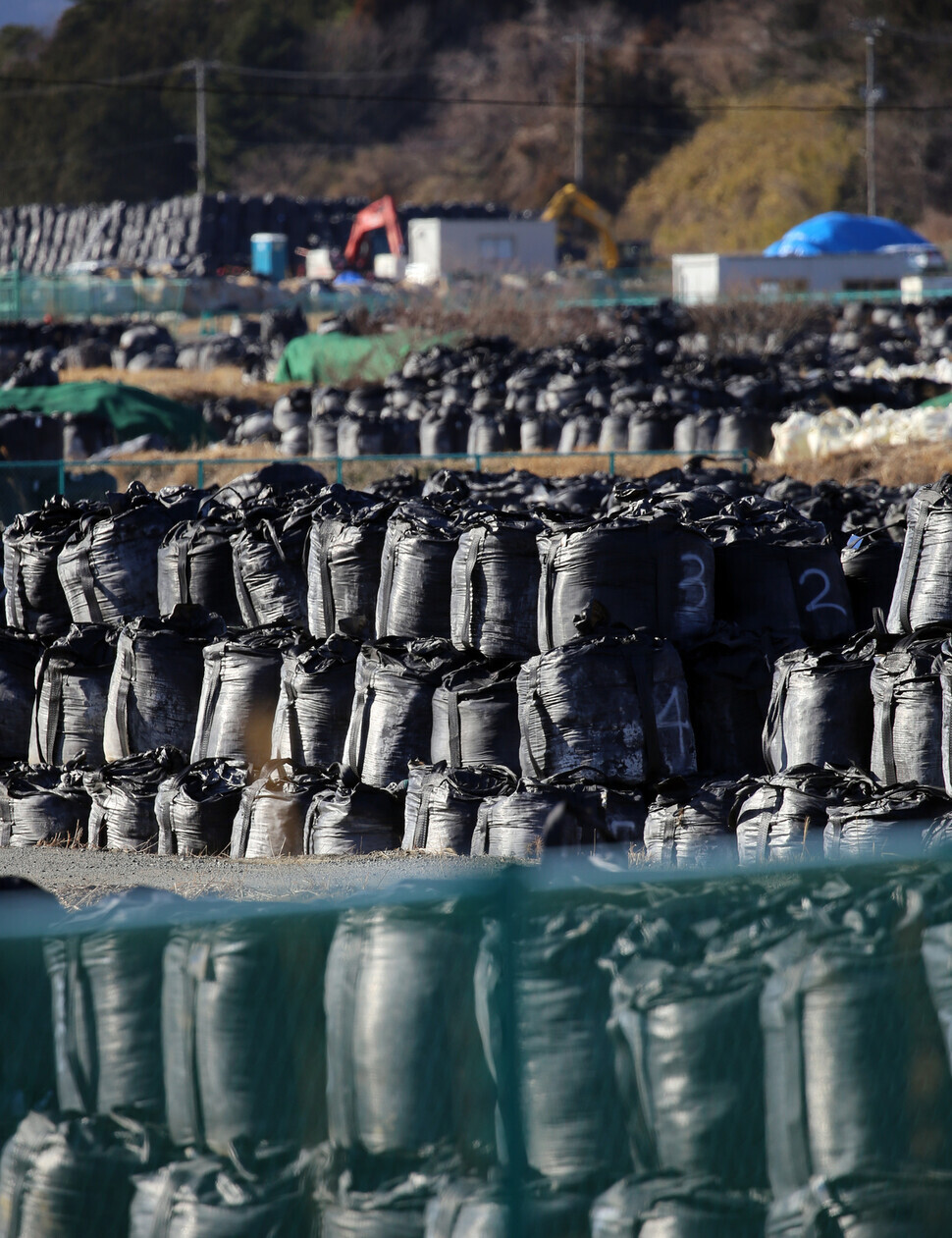hankyoreh
Links to other country sites 다른 나라 사이트 링크
[Book review] Japanese academics provide philosophical basis for opposing nuclear power in their new book


Considering that nuclear energy is fundamentally the same as nuclear weapons, which could bring about the extinction of the human race at any time, we find ourselves in a perverse situation in which economic growth and technological development take precedence over human survival, a situation that could be called the normalization of the exceptional.
“A Philosophy of Abolishing Nuclear Power” was published in Japan in 2016, five years after the Fukushima accident. The book was co-authored by Yoshiyuki Sato, 50, a professor at the University of Tsukuba, and Takumi Taguchi, 48, a professor at Utsunomiya University.
Yoshiyuki Sato is a philosopher who is regarded as having forged a unique theory from the modern ideas of such French thinkers like Michel Foucault.
In this book, Sato and Taguchi touch upon a range of issues — technology and power, the structural discrimination created by the state and capital, and postwar democracy in Japan — in a dialogue between philosophy and several other fields. The authors then tie together all those themes into their “philosophy of abolishing nuclear power.”
The authors assert that the debate about nuclear power is one of “power-knowledge” (pouvoir-savoir) that cannot be confined to the domain of technology. To borrow a concept from Michel Foucault (1926-1984), power creates knowledge, leading to a mutually encompassing combination of the two.
The combination of the state’s power and knowledge led to the development of nuclear weapons, which was then transformed into nuclear energy for civil use. State power creates various ideologies of “safety” both to conceal the fact that nuclear energy is a technology of annihilation no different from nuclear weapons and to manage it appropriately in terms of its socioeconomic costs.
A classic example is the issue of “tolerated limits” of exposure to low doses of radiation.
After the Fukushima accident, the Japanese government raised the yearly maximum exposure to radiation in the air from 1 mSv (millisievert) to 20 mSv. The 20 mSv level was selected purely for the convenience of the state, with little reference to scientific findings.
By adjusting the tolerated limit, the Japanese government was able to limit the evacuation zone from radiation exposure to Hamadori, on the eastern edge of Fukushima Prefecture, while leaving out Fukushima City and other parts of the prefecture.

In short, this reflects the operation of an ideology that “countenances a certain number of deaths from cancer so as to avoid mounting socioeconomic costs,” without bothering to consider what risk radiation exposure actually poses to humans.
This kind of knowledge-power operates throughout the entire domain of nuclear energy, including the adoption of nuclear energy, the dismissal of concerns about accidents, the response to accidents, the evacuation and return to polluted areas, and the resulting compensation and damages.
Nuclear power produces structural discrimination because the system that distributes the risk of nuclear power is inherently discriminatory. The authors provide several stark examples of this structural discrimination, one of which is the installation of nuclear plants in less-populated areas, with the realization that mass exposure to radiation would turn accidents into catastrophes.
Two other examples are atomic energy legislation that incentives regions to host nuclear power plants and then subjugates them afterward and the fact that a much higher level of radiation exposure is tolerated for workers at subcontractors than for employees at power companies.
Why then have nuclear power plants continued to operate as if nothing were the matter? The authors say that the decisive reason is postwar Japan’s “managed democracy.”
After its defeat in World War II, Japan “begin anew under the ostensible program of pacifism and democracy, but its fundamental structure remained centralized rule based on the logic of the state and capital; namely, that industrialization is equivalent to militarization.”
Nuclear power plants produce not only energy but also plutonium, a material used to make nuclear weapons, which is why nuclear energy cannot be separated from nuclear weapon production. For the same reason, nuclear energy has been at the core of Japan’s consistent pursuit in the postwar years of shokusan kogyo (industrialization) and fukoku kyohei (militarization).
The authors draw upon the arguments of Hans Jonas (1903-1993) and Jacques Derrida (1930-2004) to provide the theoretical background for their philosophy of abolishing nuclear power. In “The Imperative of Responsibility” (1979), Jonas advocated an ethics that accounts for our responsibility for future generations.
Jonas noted that because contemporary technology tends to transcend human control, humanity itself will ultimately become the subject of technology. He, therefore, argued that an ethics that only considers those who currently exist should be replaced by a new ethics that also considers those who do not yet exist, which is to say future generations.
The biggest problem that could endanger all generations to come is nuclear weapons — which is comparable to nuclear energy. And in the wake of Chernobyl and Fukushima, we are no longer in the position of speculating about future catastrophes since those catastrophes have already occurred.
At this point, the authors mention the concept of the “democracy to come” that Derrida presented in “Specters of Marx” (1993) to emphasize its urgent need at the present moment.
The authors argue that the abolition of nuclear power is not some unreachable “future present” but rather something that must be urgently accomplished in the here and now.
This philosophy of abolishing nuclear power does not leave abolition in the realm of normative but superficial rhetoric, but instead proposes the need for a new sociopolitical system.
Even though 77% of Japanese support abolishing nuclear power, politicians remain irresolute. That represents the limitations of managed democracy, the central problem in postwar Japan, which is subject to a centralized system of rule that prioritizes the logic of the state and capital.
Therefore, it is critical for abolishing nuclear power that the Japanese move from a “managed democracy” to a “radical democracy” that is directly democratic and decentralized and not subject to the logic of the state and capital, thereby creating a new state-social system.
“National referendums are indispensable for important policy decisions pertaining to the future of all citizens,” the two authors said, arguing that the decision to abolish nuclear power should be made by the “general will” of the people.
By Choi Won-hyung, staff reporter
Please direct comments or questions to [english@hani.co.kr]

Editorial・opinion
![[Column] Has Korea, too, crossed the Rubicon on China? [Column] Has Korea, too, crossed the Rubicon on China?](https://flexible.img.hani.co.kr/flexible/normal/500/300/imgdb/original/2024/0419/9317135153409185.jpg) [Column] Has Korea, too, crossed the Rubicon on China?
[Column] Has Korea, too, crossed the Rubicon on China?![[Correspondent’s column] In Japan’s alliance with US, echoes of its past alliances with UK [Correspondent’s column] In Japan’s alliance with US, echoes of its past alliances with UK](https://flexible.img.hani.co.kr/flexible/normal/500/300/imgdb/original/2024/0419/2317135166563519.jpg) [Correspondent’s column] In Japan’s alliance with US, echoes of its past alliances with UK
[Correspondent’s column] In Japan’s alliance with US, echoes of its past alliances with UK- [Editorial] Does Yoon think the Korean public is wrong?
- [Editorial] As it bolsters its alliance with US, Japan must be accountable for past
- [Guest essay] Amending the Constitution is Yoon’s key to leaving office in public’s good graces
- [Editorial] 10 years on, lessons of Sewol tragedy must never be forgotten
- [Column] A death blow to Korea’s prosecutor politics
- [Correspondent’s column] The US and the end of Japanese pacifism
- [Guest essay] How Korea turned its trainee doctors into monsters
- [Guest essay] As someone who helped forge Seoul-Moscow ties, their status today troubles me
Most viewed articles
- 1[Column] The clock is ticking for Korea’s first lady
- 2After 2 months of delayed, denied medical care, Koreans worry worst may be yet to come
- 3Samsung barricades office as unionized workers strike for better conditions
- 4[Column] Has Korea, too, crossed the Rubicon on China?
- 5All eyes on Xiaomi after it pulls off EV that Apple couldn’t
- 6[Correspondent’s column] In Japan’s alliance with US, echoes of its past alliances with UK
- 7US overtakes China as Korea’s top export market, prompting trade sanction jitters
- 8Hong Se-hwa, voice for tolerance whose memoir of exile touched a chord, dies at 76
- 9[Photo] Smile ambassador, you’re on camera
- 10[Editorial] When the choice is kids or career, Korea will never overcome birth rate woes